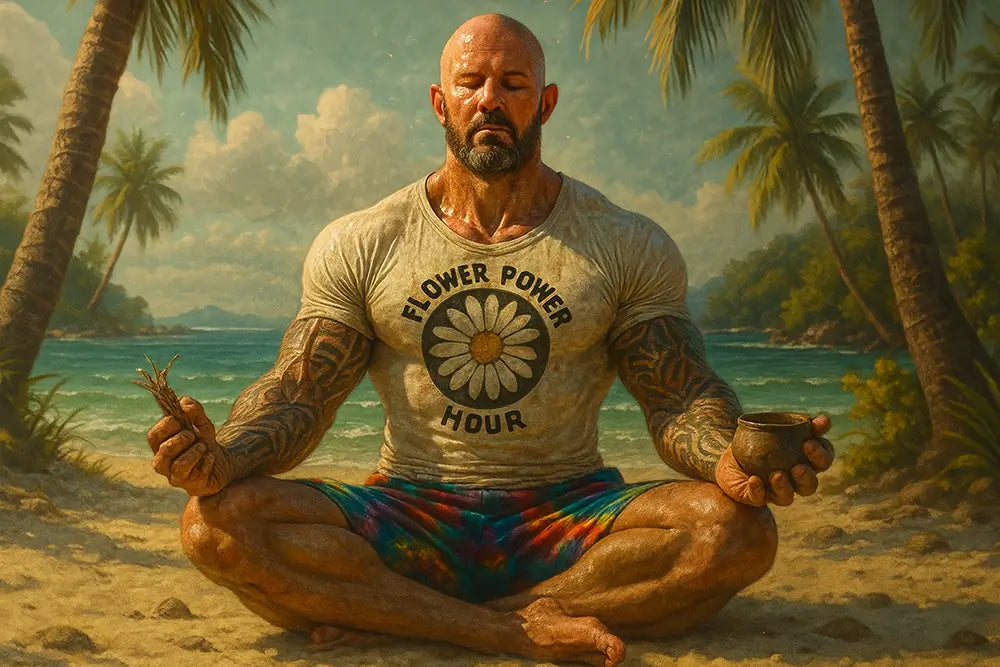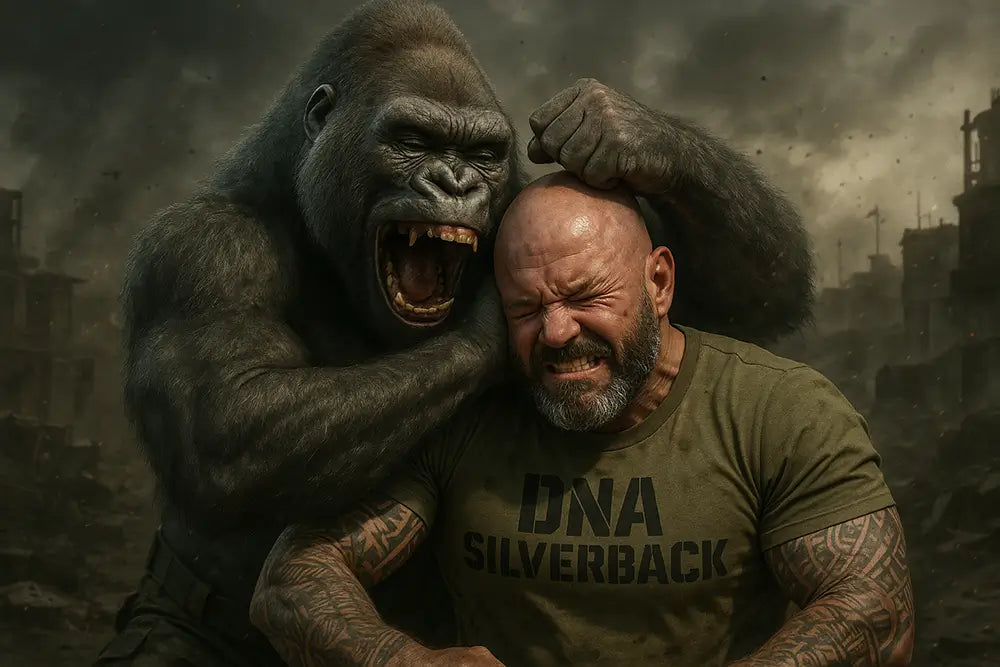November is officially the month of moustaches, mental health, and men’s well-being. From the Movember campaign's playful (yet powerful) stache-growing efforts to International Men’s Day, this is the time to break the silence on topics that have been hiding in the shadows for far too long.
But let’s be honest – a month’s worth of awareness can’t fix decades of stigma, and it’s not just mental health we need to address. There’s a sneaky, silent saboteur wreaking havoc on men’s well-being: hormonal health. Specifically, testosterone – a hormone often misunderstood as nothing more than a macho badge of honour – is intricately tied to men’s physical and emotional resilience.
So, what’s really going on behind the moustache? Let’s do a deep dive. 👇
The Testosterone-Mental Health Connection
Ah, testosterone – the hormone everyone loves to stereotype.
It’s been unfairly reduced to fuelling aggression, dominating gym culture, and making middle-aged men stubborn about asking for directions. But testosterone’s role in the human body is far more sophisticated than its “macho hormone” reputation would have you believe.
For starters, testosterone is a key regulator of mood, energy levels, and stress resilience. When testosterone is humming along at healthy levels, men report feeling confident, focused, and able to take on life’s curveballs. But here’s the catch: testosterone levels naturally start declining in men as early as their 30s.
And when testosterone drops? That’s when the dominoes start falling. 🚨
Low testosterone – or “low T” – has been linked to symptoms like:
- Fatigue
- Irritability (a.k.a. the grumpy dad syndrome)
- Depression
- Anxiety
Clinical research even shows that low-T disrupts serotonin, the feel-good brain chemical that helps regulate mood. The result? Men with low testosterone are at a higher risk of experiencing mental health struggles – and tragically, even higher rates of suicide.
The connection between testosterone and mental health is so direct that experts are beginning to reframe how we view depression in men. In some cases, it’s not just depression – it’s hormonal imbalance.
When Silence Speaks Louder Than Words
Here’s a sobering truth: men are masters of the poker face. Society has trained men to suck it up, deal with their problems silently, and “man up.” Those two little words – man up – have caused untold damage.
The result? Men are far less likely to talk about their struggles, seek therapy, or even recognise their symptoms for what they are. Instead, they bury their emotions under a mountain of work, alcohol, or sheer avoidance. But guess what? Silence is not strength.
Imagine trying to hold a boiling pot without a lid. Eventually, it’ll overflow. That’s what bottling up emotions does to mental health. It’s a pressure cooker waiting to explode.
The good news? There’s one free, no-side-effects solution that’s proven to help: talking about it.
Opening up about mental health – even just once – has saved countless lives. A simple conversation like, “I’ve been feeling off lately,” can be the lifeline someone desperately needs.
Breaking Down the Midlife Crisis Myth
When men hit their 40s or 50s, the phrase “midlife crisis” starts getting thrown around like confetti at a bad office party. The flashy car. The impulsive career change. The wardrobe overhaul. Sound familiar?
But let’s ditch the clichés for a moment. What society often dismisses as a midlife crisis is actually a symptom of andropause, the male equivalent of menopause. Yes, it’s a thing.
Andropause occurs when testosterone levels drop significantly, leading to symptoms like:
- Reduced energy and motivation
- Mood swings
- Decreased libido
- Muscle loss and weight gain
- and loss of morning erections
These changes can feel like an identity crisis. A energised, confident man now feels sluggish and unsure of himself. And the worst part? Many men don’t even realise their symptoms are tied to hormonal changes. Instead, they internalise it as personal failure, which can spiral into depression and anxiety.
But here’s the silver lining: there are things you can do, naturally. 🌿

6 Ways to Support Mental and Hormonal Health Today
Want to feel like yourself again? Start here:
-
Get Moving 🏋️♂️:
Exercise isn’t just about abs (though they’re nice). Regular movement supports testosterone production and boosts mood by flooding your brain with endorphins. -
Prioritize Sleep 😴:
Sleep is when your body recharges, both physically and hormonally. Aim for 7-8 hours of uninterrupted shut-eye to keep testosterone levels optimum. -
Eat to Fuel Hormones 🥗:
Foods rich in healthy fats, like avocados and nuts, help maintain testosterone. Skip the processed junk – it’s dragging you down. -
Talk About It 🗣️:
Still bottling things up? Start small. Whether it’s a trusted friend or a professional, opening up can be transformative. -
Explore Testosterone Supplements 💊:
Natural supplements, like ashwagandha that is in ALL DNA Supplements, can help balance hormones and ease the symptoms of low T. They’re safe, effective, and perfect for men (and even women) looking for a little extra energy. -
Join the Movember Movement 🕺:
Grow that moustache with pride and use it as an opportunity to spark conversations about men’s health – mental, hormonal, and everything in between.

Movember: More Than a Moustache
Movember has become a global phenomenon for a reason. That quirky little moustache is more than a fashion statement; it’s a symbol of solidarity.
Every conversation sparked by Movember helps men realise they’re not alone. Whether it’s mental health, testicular cancer, or even andropause symptoms, men face unique challenges – but they also have unique strengths.
Movember also reminds men that it’s okay to take their health seriously. Getting a testosterone test, for example, isn’t about vanity; it’s about taking control of your well-being. If you’ve been feeling “off,” now’s the time to act.

Help from a partner or Loved One!
Men’s health isn’t just a men’s issue. If you’re a partner, friend, or family member of someone struggling, here’s how you can help:
- Encourage open communication. Create a safe space for honest conversations.
- Learn about low testosterone and its symptoms so you can spot potential warning signs.
- Recommend natural testosterone supplements or lifestyle changes if needed.
- Join them in Movember activities – growing awareness together strengthens the message.

Final Thoughts: Let’s Make Men’s Health a Year-Round Priority
Men’s health isn’t just about one month, one movement, or one moustache. It’s about creating a culture where men feel empowered to talk about their struggles, recognize the signs of low testosterone, and take charge of their well-being.
Whether it’s through natural supplements for andropause like DNA's Silverback, daily lifestyle tweaks, or simply opening up to a friend, every small step matters.
This November, let’s redefine strength. Let’s make vulnerability heroic. And let’s remind men everywhere: you’re not alone in this fight. 💪
P.S. Encourage men to be superheroes of their own hormonal health story.






Share:
How Mike Tyson’s Testosterone Boost Has Him Ready to Knock Out Jake Paul at 58 🥊💥
Unlocking the Power of Adaptogens: Nature's Answer to Hormonal Health